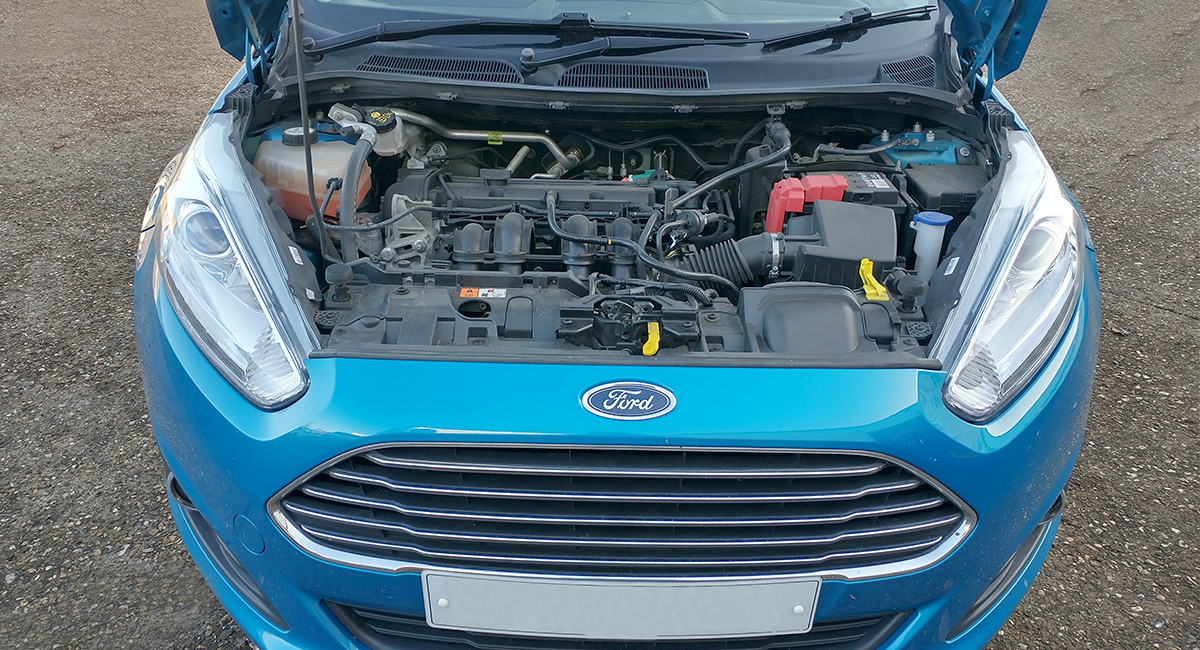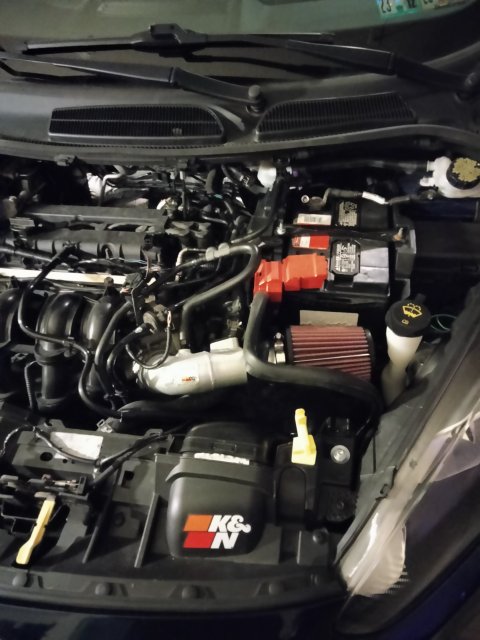Why Regular Maintenance of Your Ford Fiesta Engine Is Essential
Wiki Article
Unlocking the Power of Engines: A Comprehensive Guide to Performance and Performance
Recognizing the elaborate mechanics of engines is essential for both efficiency fanatics and day-to-day chauffeurs. The answers may redefine our method to engine efficiency and efficiency in ways that are both informing and essential.Recognizing Engine Basics
What makes up the basic mechanics of an engine? At its core, an engine is a maker designed to convert gas into mechanical energy with a collection of regulated explosions or burning procedures.The crankshaft after that changes this linear activity into rotational energy, which inevitably powers the car. The camshaft controls the opening and closing of the valves, controling the consumption of air and gas and the expulsion of exhaust gases. In addition, the engine counts on a carefully calibrated fuel-air mix, ignition system, and cooling down system to guarantee optimum efficiency and efficiency.
Comprehending engine fundamentals likewise entails recognizing the relevance of engine cycles, such as the four-stroke cycle, that includes intake, exhaust, power, and compression strokes. Each stage is essential in making certain the engine functions smoothly and effectively. Mastery of these fundamental technicians prepares for checking out extra intricate engine characteristics and performance metrics, essential for maximizing both power result and efficiency.
Key Efficiency Metrics
Key efficiency metrics are important for evaluating an engine's performance and power outcome, giving useful understandings for both customers and makers. These metrics work as benchmarks for engine performance, enabling notified choices in style, acquiring, and manufacturing.One of the main metrics is horse power, which evaluates the engine's capacity to carry out job over time. Torque, gauged in pound-feet, is one more important statistics that suggests the engine's rotational pressure, straight impacting acceleration and towing capacity. Fuel effectiveness, generally determined in miles per gallon (MPG) or litres per 100 kilometers (L/100km), evaluates how effectively the engine transforms gas into movement, influencing ecological factors to consider and operational costs.
Additionally, thermal performance measures exactly how well an engine transforms fuel power right into helpful work, revealing understandings right into power losses mainly with heat. Emission levels, consisting of carbon dioxide and NOx, are also critical, mirroring the engine's ecological effect and compliance with regulatory standards.

Tuning Strategies for Effectiveness
Tuning techniques play a substantial duty in boosting engine effectiveness by maximizing performance metrics identified in earlier discussions (ford fiesta engine). Numerous methods exist to adjust an engine, each adding to boosted gas economic climate and lowered emissionsOne efficient method is changing the air-fuel ratio, ensuring the engine runs within the optimum burning regime. A leaner mix can improve gas performance, yet it should be balanced to avoid misfires or engine knock. Furthermore, reprogramming the engine monitoring system can recalibrate specifications such as ignition timing, which even more enhances effectiveness while keeping power output.
Another vital method entails modifying the intake and exhaust systems. Updating to high-performance air filters and exhaust headers can minimize back stress, helping with far better air flow. This enables the engine to breathe even more easily, leading to improved burning effectiveness.
Moreover, the execution of advanced tuning devices, like dyno screening, gives exact data that enables targeted adjustments. Routinely checking these efficiency metrics guarantees that adjusting initiatives produce the preferred performance outcomes. Collectively, these methods not only strengthen engine performance yet also add to lasting sustainability in engine operations.
Maintenance for Ideal Performance
try this web-site Regular engine maintenance is essential for attaining optimal performance and longevity. A properly maintained engine not just operates successfully however additionally decreases the risk of expensive repair work and failures. Trick parts needing routine attention consist of oil, filters, belts, and spark plugs.Altering the engine oil at suggested periods is essential, as oil lubricates moving components and stops getting too hot. Changing oil and air filters makes find more info certain that contaminants do not hinder engine feature. Overlooking these parts can bring about lowered effectiveness and possible engine damages.
Additionally, checking and changing worn belts and hoses is vital to avoid abrupt failures. Timing belts, in certain, ought to be changed according to the maker's schedule to prevent tragic engine damage.
Ignition system must also be checked and changed as necessary, given that they play a crucial role in ignition and fuel performance.
Future Fads in Engine Modern Technology
Welcoming innovations in technology, the future of engine design is poised to transform efficiency and efficiency across various applications. Hybrid and totally electric powertrains are becoming significantly traditional, supplying lowered exhausts and enhanced fuel performance.Furthermore, technologies in products scientific research are resulting in lighter, more powerful components that enhance engine efficiency while decreasing energy this page intake. Advanced production techniques, such as 3D printing, enable the development of complex geometries that boost air movement and thermal monitoring, therefore maximizing combustion procedures.
Additionally, the integration of expert system and artificial intelligence is set to change engine diagnostics and performance adjusting. These technologies can examine vast quantities of information in actual time, making it possible for predictive upkeep and tailored performance improvements.
Final Thought
In verdict, opening the power of engines calls for a complete understanding of their auto mechanics and efficiency metrics. Carrying out reliable adjusting methods and adhering to routine maintenance techniques significantly boost engine capacities.Additionally, the engine counts on a thoroughly adjusted fuel-air mixture, ignition system, and cooling system to make sure ideal performance and performance.
Recognizing engine basics additionally entails recognizing the value of engine cycles, such as the four-stroke cycle, which consists of intake, exhaust, compression, and power strokes. Mastery of these fundamental auto mechanics lays the groundwork for exploring more complex engine characteristics and efficiency metrics, important for optimizing both power outcome and performance.

Accepting innovations in technology, the future of engine design is poised to reinvent performance and effectiveness throughout numerous applications.
Report this wiki page